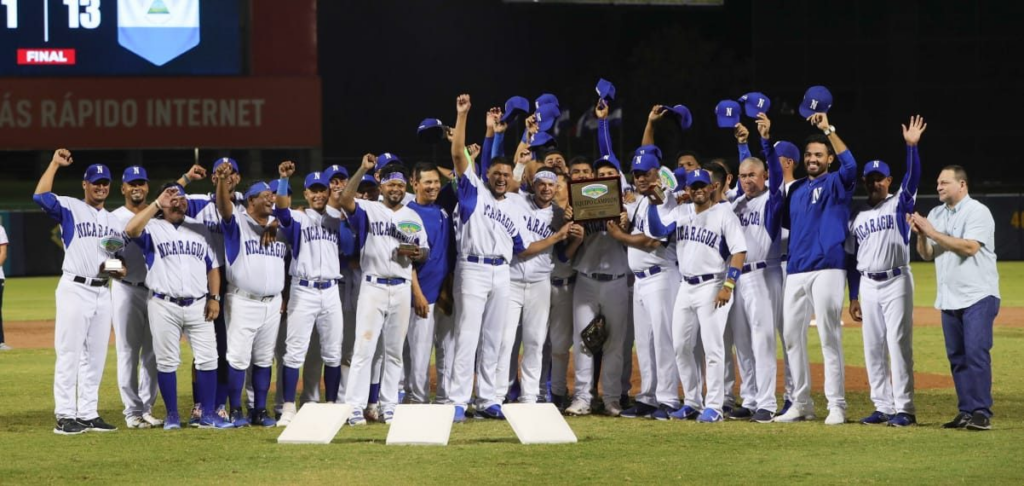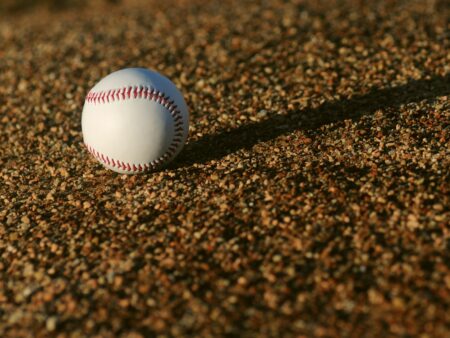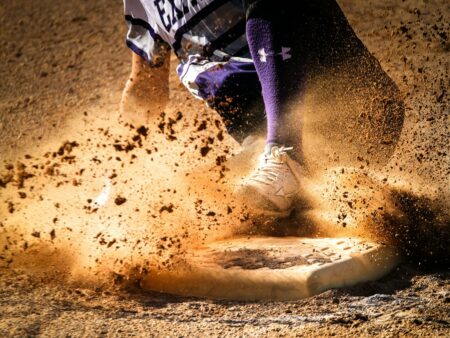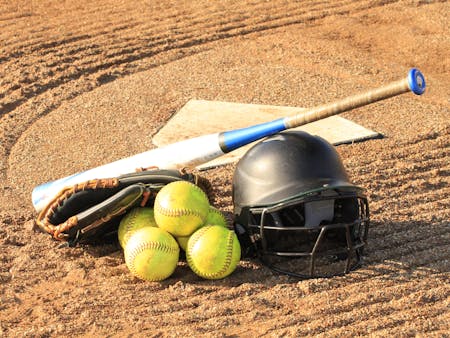Nicaraguan National Professional Baseball League, a cultural cornerstone, unites Nicaraguans through the love of baseball, the country’s beloved sport. Established in 1956, the league boasts captivating rivalries, iconic players like Vicente Padilla, and a competitive format that enthralls fans. Despite challenges, opportunities for growth offer hope for enhancing its cherished role in Nicaraguan society.
The Nicaraguan National Professional Baseball League: A Cultural Phenomenon Uniting the Nation

The Nicaraguan National Professional Baseball League isn’t just a sports league; it’s a cultural phenomenon that unites communities and ignites passion across the nation. As one of the country’s most beloved sports institutions, it brings together players and fans who share a deep love for the game. This league has become a cornerstone of Nicaraguan culture, showcasing the talent and dedication that define its players.
We find ourselves captivated by the league’s rich history and the stories that unfold on the field. Each season, teams battle it out in thrilling matches that keep us on the edge of our seats. The league not only fosters local talent but also draws international attention, shining a spotlight on Nicaragua’s vibrant sports scene. As we delve into the world of Nicaraguan baseball, we uncover the unique blend of tradition and modernity that makes this league a true gem.
Key Takeaways
- The Nicaraguan National Professional Baseball League is a significant cultural institution in Nicaragua, uniting communities and igniting national passion for baseball.
- Established in 1956, the league plays a pivotal role in showcasing local talent, fostering intense rivalries, and drawing international attention to Nicaragua’s sports scene.
- Notable teams like Indios del Bóer and Leones de León have historically dominated the league, while iconic players have enhanced its prestige by achieving international success.
- The league’s distinct structure involves a regular season from November to December, followed by playoffs leading to a highly competitive championship series.
- Challenges such as financial constraints and infrastructure issues pose hurdles to the league’s growth, yet improvements in these areas could unlock significant opportunities for development and global collaboration.
Overview Of The Nicaraguan National Professional Baseball League
The Nicaraguan National Professional Baseball League, known locally as the Liga de Beisbol Profesional Nacional (LBPN), holds a central place in the cultural identity of Nicaragua. Recognized as the country’s national sport, baseball resonates throughout the communities, promoting unity and enthusiasm.
Rooted in the 1880s when American entrepreneur Albert Addlesberg introduced baseball, the sport quickly spread, eventually supplanting cricket. By 1891, official matches were played, laying the groundwork for a more organized approach to the sport. This early adoption set the stage for the league’s establishment in 1956.
Inaugurated with a game between the Fieras del San Fernando and the Indios del Bóer, the league quickly fostered intense rivalries and showcased local talents. The first champions, Leones de León, set a benchmark of excellence that continues to inspire players. The LBPN persists as a symbol of Nicaraguan pride, blending venerable traditions with contemporary flair, and consistently attracting both national and international interest.
History And Evolution
The Nicaraguan National Professional Baseball League, or Liga de Béisbol Profesional Nacional (LBPN), represents a key chapter in Nicaragua’s sporting history, reflecting passion and cultural heritage.
| Period | Milestone/Event |
|---|---|
| 1880s | Baseball introduced to Nicaragua by American entrepreneur Albert Addlesberg. |
| 1891 | Official baseball matches played, laying the groundwork for organized sport. |
| March 30, 1956 | League inaugurated with a game between Fieras del San Fernando and Indios del Bóer at Estadio Nacional. |
| September 1956 | League temporarily suspended following assassination of Anastasio Somoza García. |
| Late 1950s | Transitioned from a summer to a winter schedule, integrating into organized baseball. |
Founding And Early Years
Formed in 1956, the league held its inaugural game on March 30, 1956, at Estadio Nacional Anastasio Somoza. The opening match saw the Fieras del San Fernando square off against the Indios del Bóer, marking the league’s formal commencement. Initially, five teams competed: Indios del Bóer, Cinco Estrellas, San Fernando, León, and Flor de Caña. Following the untimely suspension of the league in September 1956 due to the assassination of Anastasio Somoza García, play resumed by March 1957. The league’s launch laid the foundation for professional baseball in Nicaragua.
Major Developments Over The Decades
Transitioning from a summer to a winter schedule in the late 1950s marked the league’s integration into organized baseball. Over the years, the LBPN witnessed significant transformations and adaptations, evolving into a more structured and competitive winter league. Teams and administration made continuous improvements, ensuring the league’s status and appeal both domestically and internationally. The league showcased not only local talent but also cultivated an avenue for international exposure, much like the efforts seen in the broader context of the panamanian professional baseball league. This adaptability has been crucial for enduring popularity and maintaining interest across generations of baseball fans.
Key Teams And Players
The Nicaraguan Professional Baseball League, with its esteemed legacy and vibrant competition, features teams and players who’ve shaped its rich history.
| Team Name | Achievements |
|---|---|
| Indios del Bóer | 9 championships, including the 2022-23 season win. A benchmark for success in the league. |
| Leones de León | Claimed the first league title in 1956. Eight total championships. |
| Gigantes de Rivas | Secured five championships, notable recent performances. |
| Tigres de Chinandega | Four championships, adding depth to the league’s competition. |
| Cinco Estrellas | Historically significant team during the league’s formative years (no longer active). |
Notable Teams
The Indios del Bóer stand out as a powerhouse, with nine championships, including their latest triumph in the 2022-23 season. Often a benchmark for success, their dominance is well-recognized. Another team with a storied past is the Leones de León, who claimed the first league title back in 1956, laying the foundation of excellence in the league, similar to the historical legacy of the dominican professional baseball league. The Gigantes de Rivas have also made a mark, securing their fifth championship in recent times. Meanwhile, teams like the Tigres de Chinandega and Tren del Norte add depth and competition to the league. Not to be forgotten, the Cinco Estrellas were significant in the league’s formative years though no longer active.
Iconic Players
Throughout the league’s history, numerous players have dazzled fans. Players such as Vicente Padilla, who achieved fame in Major League Baseball, began their careers in Nicaragua.Padilla’s influence paved the way for future generations to aspire to international success, akin to notable figures from major league baseball. Another example is Cheslor Cuthbert, who has contributed significantly to baseball both locally and overseas. These players epitomize the raw talent and potential that the league nurtures, positioning Nicaraguans on the global baseball stage.
League Structure And Format
The Nicaraguan National Professional Baseball League stands out with its distinct organizational framework. The structure comprises five competitive teams, creating a vibrant and dynamic league atmosphere.
| Component | Details |
|---|---|
| Regular Season | Takes place from November to December, featuring five teams and 30 games per team. |
| Teams | Indios del Bóer, Tigres de Chinandega, Leones de León, Gigantes de Rivas, Tren del Norte. |
| Playoffs | Four-team playoff round robin. |
| Championship Series | Best-of-seven series featuring the top two teams from the playoffs. |
| Notable Achievements | Indios del Bóer (9 titles), Leones de León (8 titles), Tigres de Chinandega (4 titles). |
Regular Season
The league’s regular season takes place from November to December. Each of the five teams—Indios del Bóer, Tigres de Chinandega, Leones de León, Gigantes de Rivas, and Tren del Norte—competes in 30 intense games. This schedule lays the groundwork for a competitive season, showcasing the talents of each team.
Playoffs And Championships
Following the regular season, the league enters a vigorous four-team playoff round robin. The top two teams from this round advance to a best-of-seven championship series. This structure ensures that only the strongest competitors vie for the championship, making the finale decisive and thrilling. Notably, the Indios del Bóer have claimed 9 titles, while Leones de León and Tigres de Chinandega have secured 8 and 4 titles, respectively, exhibiting their historical success in winning championships.
The Impact On Nicaraguan Culture
Baseball is central to Nicaraguan identity, uniting the nation through shared enthusiasm. As a sport deeply rooted in tradition and community, it surpasses other sports in cultural importance.
Baseball As A National Passion
In Nicaragua, baseball is more than a game; it’s a way of life. Introduced in the 1880s by Albert Addlesberg, baseball quickly became the country’s national sport. Its growth can be attributed to the dedication and talent of players and fans, who have nurtured the sport from its inception. The pride and fervor associated with Nicaragua’s baseball culture are unparalleled, fostering generations of passionate supporters.
Community Engagement And Support
Baseball significantly boosts community cohesion and social interaction. Local teams and leagues engage fans and create a vibrant atmosphere during matches, making them social events that extend beyond the sport, reminiscent of community engagement in the italian baseball league. Compelling rivalries draw thousands of spectators, uniting them through shared experiences and reinforcing regional pride. As local businesses often sponsor teams, this mutual support benefits the economy and maintains the sport’s vitality.
Challenges And Opportunities
The Nicaraguan National Professional Baseball League faces several hurdles impacting its growth and development. These challenges, however, present opportunities for improvement and innovation.
| Challenges | Opportunities |
|---|---|
| Financial limitations | Improved administration, increased sponsorships, and international collaborations. |
| Inadequate facilities and infrastructure | Enhancing stadiums and facilities for improved player training and fan experience. |
| Corruption | Boosting transparency and integrity for greater credibility. |
| Weak administrative structures | Restructuring governance for efficient league management and better resources allocation. |
Financial And Logistical Hurdles
Nicaraguan baseball confronts significant resource limitations, complicating the training and development of players. The lack of facilities and equipment coupled with inadequate funding hampers the sport’s growth. Weak administrative structures add further strain. The league’s management struggles with facility standards and overall governance, making it difficult to gain acceptance into the Caribbean Confederation.
Corruption also poses a major issue. As noted by Dennis Martinez, a former MLB pitcher, corruption undermines the sport’s development and integrity. Infrastructure remains a critical concern, with many stadiums and facilities in poor condition, limiting the league’s potential.
Future Prospects And Growth
Despite these challenges, the league holds potential for substantial growth. Improvement in administration and infrastructure could transform the league, enabling it to attract more talent and international partnerships, much like the ongoing development within the korea baseball organization. By enhancing facility conditions and securing more resources, the league can nurture its budding talent and strengthen its regional presence. Boosting transparency and reducing corruption can solidify the league’s credibility and foster its growth in international arenas.
Economic advancements in Nicaragua could also contribute to the league’s evolution, as increased investment and sponsorship can fuel development initiatives. Collaborative efforts with other Latin American leagues might forge pathways for both cultural exchange and enhanced competition.
Conclusion
The Nicaraguan National Professional Baseball League stands as a testament to our nation’s deep-rooted love for baseball. It’s more than a sport; it’s a vital part of our cultural fabric that brings people together and showcases our incredible local talent. Despite facing numerous challenges, the league continues to thrive, adapting and evolving to maintain its cherished status. By addressing existing hurdles and embracing opportunities for growth, we can ensure that this beloved institution remains a beacon of Nicaraguan pride and a platform for our players to shine on the global stage.
Frequently Asked Questions
What is the Nicaraguan National Professional Baseball League known as locally?
The Nicaraguan National Professional Baseball League is known locally as the Liga de Beisbol Profesional Nacional (LBPN). It is a key cultural institution in Nicaragua, showcasing the nation’s passion for baseball.
When was the league established, and what was significant about its inaugural game?
The league was established in 1956, with the inaugural game played on March 30 at Estadio Nacional Anastasio Somoza. The match featured Fieras del San Fernando and Indios del Bóer, marking the beginning of a significant sports tradition in Nicaragua.
Which teams are considered powerhouses in the league?
Indios del Bóer and Leones de León are considered powerhouses in the LBPN. Indios del Bóer has won nine championships, while Leones de León claimed the first league title in 1956, setting a benchmark in the league’s history.
What is the structure and format of the league?
The LBPN consists of five competitive teams. The season runs from November to December, with teams playing 30 games. The four-team playoff round robin follows, leading to a best-of-seven championship series to determine the league champion.
How does baseball contribute to Nicaraguan culture?
Baseball plays a central role in uniting Nicaraguans, fostering community engagement and pride. It is seen as more than a sport, becoming a way of life that enhances social interaction and supports local economies through vibrant events and passionate fan bases.
What challenges does the league face, and what opportunities exist?
The league faces challenges like financial constraints, inadequate facilities, and weak infrastructure. However, improving administration, infrastructure, and transparency could attract more talent and partnerships, fostering growth and cultural exchange in Nicaraguan baseball.


